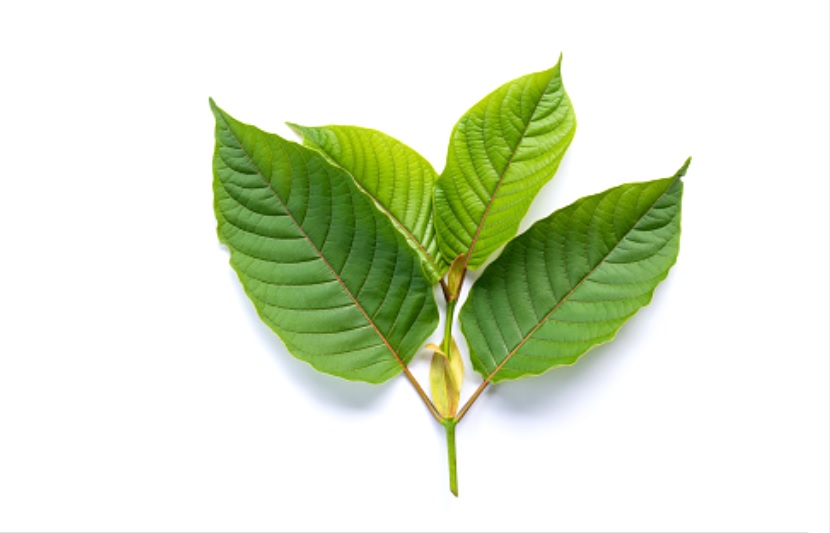A very low-carb, high-fat diet, the ketogenic diet is comparable to the Atkins and low-carb diets in many ways. It entails significantly lowering carbohydrate intake and substituting fat for it.
Due to this carbohydrate restriction, your body enters a metabolic condition known as ketosis. Your body becomes highly effective at burning fat for energy when this occurs. Additionally, ketosis causes the liver to produce ketones from fat, which the brain can use as fuel. You might enter ketosis more quickly if you practice intermittent fasting. There are many other ways to fast intermittently, but the most popular one entails eating just for around eight hours a day and fasting for the other sixteen. You can learn more on this website.
The herb Kratom is well-known for its healing properties. It is being promoted as a supplement by many health professionals and weight loss fans worldwide. Those following a ketogenic diet would be curious to know if it suits them. Let’s investigate further.
What Is Kratom?
The source of Kratom is a tree in the coffee family that is evergreen and goes by the name Mitragyna Speciosa. It can be found in various countries which mainly include Indonesia, Thailand, and Myanmar.
Since the 19th century, people have been using it as herbal medicine. After all, the plant possesses both stimulant and narcotic qualities. Some people use its leaf extract as a stimulant and sedative.
Uses Of Kratom
Even though Kratom has been available on the market for a while, more people are starting to identify this herbal supplement due to its many advantages. It has primarily been utilized as an opioid painkiller, although it also possesses antidepressant, serotonergic, and dopaminergic effects.
This affordable, legal weed is sold over-the-counter and can be found in stores. Because it encourages a legal high and mental clarity, it is quickly gaining popularity. Today, several businesses sell powder, pills, and Kratom leaves. It is used to alleviate diarrhea, cramping, discomfort, and weariness.
According to several studies, Kratom aids in enhancing libido, elevating mood, and alleviating depression. In Asia, Kratom has been used as a natural home medicine for centuries.
Although some of these and other claims made by traditional medicine have received some backing from modern science, much more research is still required.

Kratom Ingredients – All You Need To Know
The different forms of Kratom include powder and capsules. Let’s examine the nutrient content of raw Kratom, which contains no extra ingredients.
From 2g of Kratom leaves, you get:
- 7.4 calories
- 13.2 mg of calcium
- 0.5 mg of iron
- 0.1g of salt
- 0.1g of lipids
- 0.2g of protein.
- 18.5 mg of potassium
- 0.5 mg of iron
- 0.1g of carbs
Kratom – Can You Take It While On The Keto Diet?
Yes, Kratom is suitable for keto. However, it would help if you drank it in moderation. You shouldn’t take more than 2g of it daily because it is a medicine, and every medicine can yield some undesirable side effects.
Where Can I Find Kratom?
You can purchase Kratom at your neighborhood drug stores and pharmacies. Hence, it is becoming popular among people following a keto diet, due to its accessibility.
Quantity & Dosage
The appropriate dosage of Kratom relies on several variables, including the user’s age and general health. One research found that the dosage levels of this herb alter its effects, with a low dose ranging from 1 to 5 grams and a moderate dose ranging from 5 to 15 grams.
More research is required to ascertain the short- and long-term consequences of these dosage fluctuations on the body. Be sure to speak with your pharmacist or doctor before using Kratom in your keto diet due to its potency and the lack of research establishing acceptable intake amounts.
Things To Know When Using Kratom For The Keto Diet
You might be worried about the carbs in Kratom and how they might affect your diet if you have been taking it for a long and are benefiting from it, but have also begun a ketogenic diet.
The issue with Kratom is that conflicting claims have been made about the plant due to a lack of scientific support. There is no need to worry about Kratom’s calorie content, according to those who have used it in conjunction with their diet and weight loss efforts. These people lost weight and succeeded in doing so, as they didn’t notice a significant difference in their calorie intake while using Kratom.
The Kratom plant is generally thought of as a plant, and like most plants, it mostly consists of indigestible fiber. It’s more likely that using Kratom while on a ketogenic diet will be identical to using any other plant’s leaf.

For those watching their weight, there is good news regarding the link between Kratom use and weight loss. Kratom inhibits food and water intake, which promotes weight loss. Therefore, it is one of the advantages for those for whom obesity is a serious issue.
To be safe, you might want to discuss your lifestyle and any prospective supplements you want to take, including Kratom, with your doctor.
How Can You Get The Most Out Of Kratom While On The Keto Diet?
While knowing where to get Kratom may be important, you must also know how to maximize its benefits without jeopardizing your ketogenic diet. Many users insist that taking the herb and immediately following it with coffee gives them the best results.
The advantages of consuming Kratom with coffee are greatly increased. If you took it an hour ago and aren’t feeling the effects, drinking a cup of coffee will restore the effects you were hoping to feel from the start but weren’t.
The Bottom Line
Consequently, using Kratom while on a ketogenic diet with a cup of coffee is advised if you feel that doing so is safe for you. The likelihood of Kratom remaining an effective low-carb and low-fat dietary supplement is higher. It is always important to consult your doctor first, so that you can avoid any side effects.
About the author:

Dr. Claudio Butticè, Pharm.D., is a former Pharmacy Director who worked for several large public hospitals in Southern Italy, as well as for the humanitarian NGO Emergency. He is now an accomplished book author who has written on topics such as medicine, technology, world poverty, human rights, and science for publishers such as SAGE Publishing, Bloomsbury Publishing, and Mission Bell Media. His latest books are “Universal Health Care” (2019) and “What You Need to Know about Headaches” (2022). A data analyst and freelance journalist as well, many of his articles have been published in magazines such as Cracked, The Elephant, Digital Journal, The Ring of Fire, and Business Insider. Dr. Butticè also published pharmacology and psychology papers on several clinical journals, and works as a medical consultant and advisor for many companies across the globe.
Article updated on March 18, 2024
References
- Prevete, E., Kuypers, K. P., Theunissen, E. L., Corazza, O., Bersani, G., & Ramaekers, J. G. (2021). A systematic review of (pre)clinical studies on the therapeutic potential and safety profile of kratom in humans. Human Psychopharmacology: Clinical and Experimental, 37(1). doi:10.1002/hup.2805
- Todd, D.A., Kellogg, J.J., Wallace, E.D. et al. Chemical composition and biological effects of kratom (Mitragyna speciosa): In vitro studies with implications for efficacy and drug interactions. Sci Rep 10, 19158 (2020). https://doi.org/10.1038/s41598-020-76119-w
- Swogger, M. T., Smith, K. E., Garcia-Romeu, A., Grundmann, O., Veltri, C. A., Henningfield, J. E., & Busch, L. Y. (2022). Understanding Kratom use: A guide for healthcare providers. Frontiers in Pharmacology, 13. doi:10.3389/fphar.2022.801855
- Veltri, C., & Grundmann, O. (2019). Current perspectives on the impact of Kratom use. Substance Abuse and Rehabilitation, Volume 10, 23–31. doi:10.2147/sar.s164261
